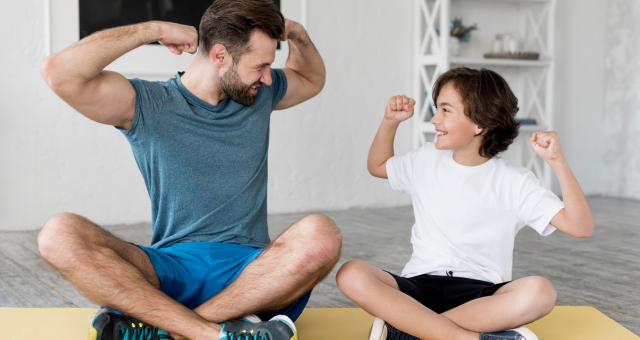Medically Reviewed by Lucas Rosa, PhD in Molecular Biology
Learn about 4 effective bedtime habits that can also improve your hormonal health.
The Science Behind Sleep & Hormone Health
Sleep plays a crucial role in regulating numerous hormones in our bodies, including cortisol, melatonin, and growth hormone. These hormones are essential for managing stress, maintaining a healthy immune system, and promoting overall physical and mental well-being.
Consistent disruptions in sleep can lead to hormonal imbalances which may result in issues such as weight gain, mood swings, and an increased risk of diseases. Understanding the connection between sleep and hormone health is the first step toward creating a healthier sleep routine.
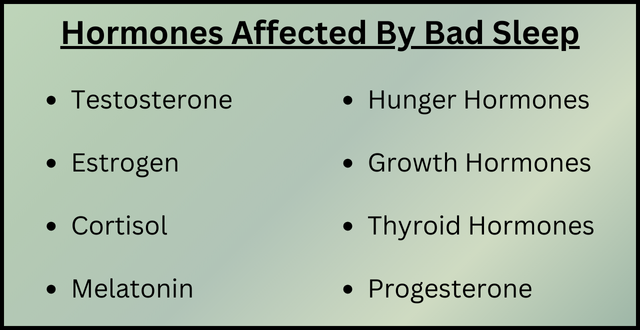
Create a Good Sleep Environment
Your sleep environment can significantly impact the quality of your sleep. Studies have shown that light, noise, safety, pollution, and other environmental factors can disrupt sleep.
Creating a dark, quiet, and cool room can enhance your sleep by minimizing disturbances and promoting a comfortable sleeping temperature. Investing in a good mattress, comfortable blankets and pillows, and blackout curtains can help you build a good sleep environment.
Additionally, eliminating electronic devices in your place of sleep can help create an optimal environment that’s good for deeper and more restorative sleep.
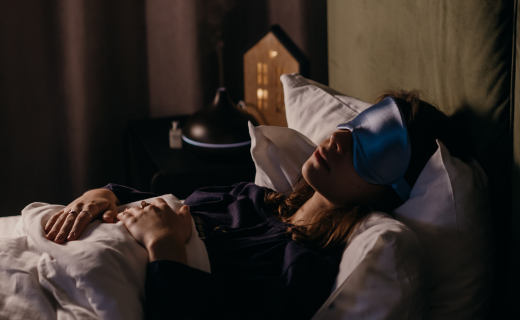
Build a Bedtime Routine
The goal of a bedtime routine is to signal to your body that it is almost time to sleep. Bedtime routines are daily activities that you do 30 to 60 minutes before you go to bed. There is a wide variety of activities that you could choose from, but make sure that these activities are de-stressing and help you wind down.
By building a bedtime routine, your body will start to connect these daily activities to winding down and it will become easier to go to sleep over time.
Additionally, planning out your bedtime routine prior to the time you want to go to bed can help you create a consistent sleep schedule. By going to bed and waking up around the same time every day, even on weekends, you can regulate your body’s internal clock which can make it easier to fall asleep at night.
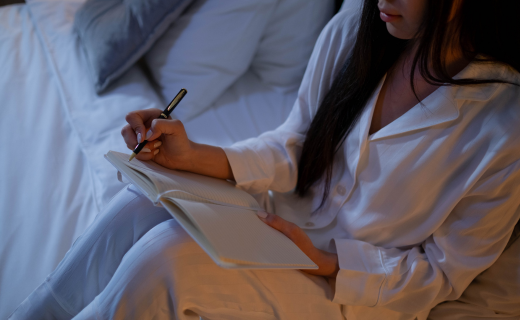
Avoid Certain Intake Before Bed
Certain foods and beverages can interfere with your ability to fall and stay asleep. Heavy meals, spicy foods, and alcohol can disrupt sleep by causing indigestion or frequent awakenings. Opt for light snacks, like bananas or almonds, if you are hungry before bed.
Additionally, avoid stimulants like bright lights, electronic screens, nicotine, and caffeine before bed because things like this make our bodies alert and more energized. Avoiding these before bed can greatly benefit your sleep quality.
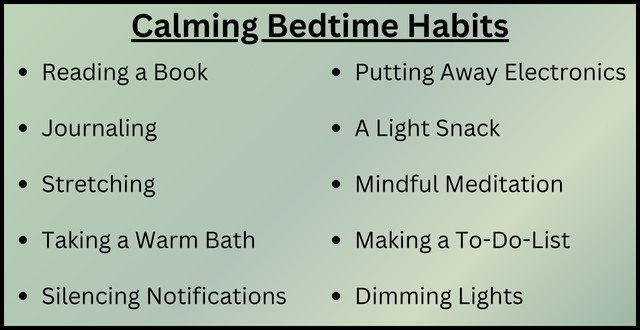
Engage In Physical Activity
Regular physical activity can promote better sleep by reducing stress and anxiety, improving mood, and helping regulate your sleep-wake cycle hormones. Moderately exercising for at least 30 minutes on most days of the week can greatly improve sleep quality and duration.
Although exercise can greatly improve sleep, be mindful of the timing of your workouts. Exercising too close to bedtime can have the opposite effect by increasing alertness and energy levels. Try to finish exercising at least a few hours before you plan on going to sleep.
To learn more about sleep and exercise, visit Sleep Foundation.
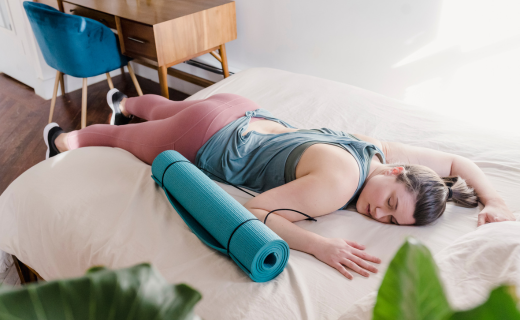
Conclusion
Making good sleep decisions involves the understanding of the intricate relationship between sleep and hormonal health.
By optimizing your sleep environment, establishing a calming bedtime routine, avoiding certain intakes before bed, and incorporating regular physical activity, you can enhance both your sleep quality and hormonal balance.
Remember, small changes can make a big difference. Start by creating an environment that is excellent for sleep and gradually build the routine that works best for you. Your body and mind will thank you for it.
Sources:
Alnawwar, Majd A., et al. “The Effect of Physical Activity on Sleep Quality and Sleep Disorder: A Systematic Review.” Cureus, vol. 15, no. 8, 16 Aug. 2023, www.ncbi.nlm.nih.gov/pmc/articles/PMC10503965/, https://doi.org/10.7759/cureus.43595.
Deshong, Alison. “Sleep Environment: Temperature, Humidity, Light, & Noise.” Sleep Doctor, 13 Dec. 2022, www.sleepdoctor.com/sleep-environment/.
goodpath. “How Stimulants Affect Your Sleep | Goodpath.” Goodpath, www.goodpath.com/learn/stimulants-sleep.
Hopkins, John. “Exercising for Better Sleep.” Johns Hopkins Medicine, 2019, www.hopkinsmedicine.org/health/wellness-and-prevention/exercising-for-better-sleep.
Johnson, Dayna A., et al. “Environmental Determinants of Insufficient Sleep and Sleep Disorders: Implications for Population Health.” Current Epidemiology Reports, vol. 5, no. 2, 5 May 2018, pp. 61–69, www.ncbi.nlm.nih.gov/pmc/articles/PMC6033330/, https://doi.org/10.1007/s40471-018-0139-y.
Pacheco, Danielle, and David Rosen. “Bedtime Routines for Adults.” Sleep Foundation, 8 Dec. 2023, www.sleepfoundation.org/sleep-hygiene/bedtime-routine-for-adults.
Suni, Eric. “Mastering Sleep Hygiene: Your Path to Quality Sleep.” Sleep Foundation, 4 Mar. 2024, www.sleepfoundation.org/sleep-hygiene.
Vinall, Marnie. “Your Hormones May Be the Key to Getting a Solid Night’s Sleep. Here’s How.” Healthline, 1 Sept. 2021, www.healthline.com/health/sleep/how-sleep-can-affect-your-hormone-levels#hormones-and-sleep.
Featured Photo by Anna Nekrashevich: https://www.pexels.com/photo/woman-in-white-shirt-lying-on-bed-6603663/
Check Out
HF Swaps
Better products for better hormone health.



